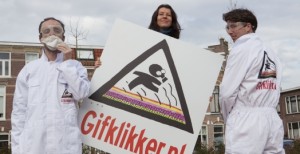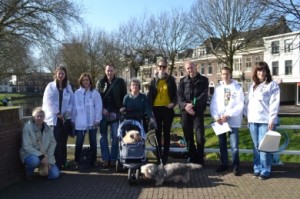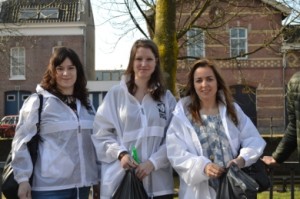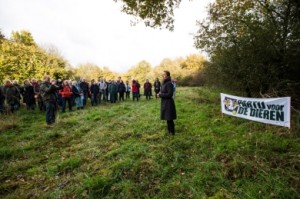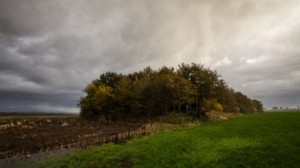Worldlog Settimana 11 – 2014
Grande successo questa settimana: i pesticidi agricoli devono sparire dagli scaffali dei garden center olandesi! Dalla fine del 2015 il pericoloso pesticidio agricolo glifosato non può più essere venduto a privati. Il glifosato è un componente di RoundUp, che è venduto anche a privati come diserbante. Il glifosato è sempre di più legato a problemi di salute come l’infertilità, difetti alla nascita, danni al sistema nervoso, il morbo di Parkinson e varie forme di cancro. Oltre ai rischi per la salute per gli esseri umani l’uso di pesticidi chimici porta anche alla perdita di biodiversità e l’acqua potabile sempre più difficile da purificare.
La scorsa settimana e il fine settimana sono stata molto occupata per le amministrative. Ieri ho camminato con un’escursione di quartiere a Utrecht per guardare tra le altre cose, allo spazio sufficiente per i ciclisti, campi da gioco a sufficienza per i bambini e posti a sufficienze per portare a spasso i cani. E domani (Martedì 11 Marzo) vado a piantare un albero di protesta ad Amsterdam con i bambini della scuola primaria Cosmicus Impulse di Amsterdam-Nord.
Questa settimana il sottosegretario ha confermato che il corpo forestale dello stato (l’impresa statale che gestisce gran parte della natura olandese) termina la vendita di natura! Dopo la nostra azione fruttuosa di acquisto-natura appare che la vendita di natura, per ora non avviene più. L’anno scorso in questo periodo, è stato annunciato che il Corpo Forestale dello Stato avrebbe venduto al miglior offerente parti della natura. Allora noi abbiamo istituito un’azione di finanziamento-foresta per acquistare con gli amici della natura parti della natura. Ciò è stato un grande successo! In due settimane e mezzo abbiamo raccolto più di duecentocinquanta mila euro e comprammo anche parti della natura.
Molto interessante articolo nel The New York Times sulla fine della differenza tra paesi in via di sviluppo e paesi industrializzati.
Alla prossima settimana!
Marianne
A great success this week: agricultural chemical is to go off the shelves of Dutch garden centres! As of the end of 2015, the harmful agricultural chemical glyphosate will no longer be sold to private persons. Glyphosate is a compound of RoundUp, which is also sold to private persons as a weed killer. Glyphosate is increasingly connected to health problems such as infertility, birth defects, damage to the nerve system, Parkinson disease and various forms of cancer. In addition to the health risks for humans, the use of chemical pesticides further leads to the loss of biodiversity and increased complications for the purification of drinking water.
Last week and weekend, we have been actively campaigning for the municipal elections. Yesterday, I went along on an excursion in a Utrecht district to see if there is sufficient room for cyclists, enough outdoor playgrounds for children, and sufficient places to walk dogs. And tomorrow (Tuesday the 11th of March) I am going to plant a ‘protest tree’ in Amsterdam, together with the pupils of the primary school Cosmicus Impuls in Amsterdam-Noord.
This week, the State Secretary confirmed that Staatsbosbeheer (Forestry Commission, the state company that manages a large part of the Dutch nature areas) will stop the selling of nature. After our successful action to buy parts of nature, the sale of nature seems to to have been put aside for a while. Last year around this time it was announced that Staatsbosbeheer was going to sell parts of nature to the highest bidder. We then set up a forest funding action to buy parts of nature together with nature lovers. That was very successful! We raised more than two hundred and fifty thousand euros and also bought parts of nature.
Here is a very interesting article in The New York Times about the end of the difference between developing countries and developed countries.
Until next week!
Marianne
